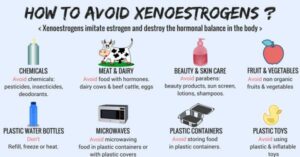BioIdentical Hormone replacement for Women
- Home
- BioIdentical Hormone replacement for Women
Hormone Replacement Therapy for Women
Causes of Hormonal Imbalance:
Aging
As a woman ages, her hormone levels may naturally decline. During the menstrual cycle, estrogen and progesterone are the two main hormones that are produced. As a woman approaches menopause, her hormone levels fluctuate and gradually decline. In fact, hormone levels can start to decline several years before menopause is reached.
After menopause, estrogen and progesterone decline dramatically. The decline in both hormones is responsible for many of the common symptoms of menopause including hot flashes, weight gain, and trouble sleeping.
Several studies have indicated that a decrease in estrogen during menopause also increases visceral fat. Visceral fat is especially dangerous because it is fat that surrounds your vital organs. One study that involved 156 healthy women indicated that as women aged, they had an increase in subcutaneous fat, but after menopause visceral fat increased.


Over-exercising
Exercising is good for your body and mind. But it is possible to get too much of a good thing when it comes to working out. Too much vigorous exercise can cause a reduction in hormones, especially estrogen.
When you exercise vigorously on a regular basis, your body uses the energy for the intense physical activity. Non-essential processes, such as bone building and reproduction, start to shut down. What may happen is the body produces fewer hormones, such as estrogen. The declining hormone levels can lead to osteoporosis, infertility, and hot flashes.
Poor diet
A poor diet can lead to an imbalance in hormone levels. For example, eating too many foods high in simple carbohydrates and sugar can raise cortisol levels in the body. High cortisol levels may then influence the amount of progesterone produced.
Reducing calories too much can also cause a decline in hormones. If you severely restrict calories, hormone levels start to decrease. One study indicated that reducing calories by 470 a day compared to baseline calories needs for three months was enough to cause a hormonal imbalance in women and disturb the menstrual cycle.


Xenoestrogens
Xenoestrogens are chemicals that are found in everyday items, such as insecticides, products made of plastic, make-up, and even certain foods. Examples of xenoestrogens include BHA food preservative, parabens, and benzophenone, which is found in sunscreen. Xenoestrogens can disrupt the endocrine system and have an estrogen-like effect.
According to research, xenoestrogens can mimic parts of the estrogen compound and may interfere with the actions of natural estrogen. When xenoestrogens build up in the body, they can increase the level of estrogen leading to estrogen dominance, a condition in which there is an imbalance between estrogen and progesterone. This could also be called a progesterone deficiency.
Environmental Exposure
Toxic chemicals in our environment are called endocrine disruptors because they interfere with and affect our hormone balance. The endocrine system produces and manages our hormones. These chemicals, which come from pollution, pesticides, paint fumes, household cleaners, car exhaust and chemicals in products and foods, can disrupt hormone balance in numerous ways:
- Imitate hormones
- Increase production of hormones
- Decrease production of hormones
- Turn one hormone into another
- Interfere with hormone signaling
- Tell cells to die prematurely
- Compete with essential nutrients
- Bind to hormones
- Accumulate in organs that produce hormones

The good news is that a hormone imbalance can be fixed. You do not have to live with a hormone imbalance.
Hormone replacement therapy (HRT) is a medical treatment that boosts declining levels of estrogen and progesterone in a person approaching menopause. It helps ease some menopausal symptoms, such as hot flashes, night sweats, and vaginal dryness. HRT can be used orally, topically, or vaginally.
A life with less signs of hot flashes, less unexplained weight gain, and better sleep. HRT will also reduce the risk of heart disease, diabetes, stroke, and even some cancers, like breast cancer.
The Practitioners at Rewind Specialize in Bioidentical Hormone Therapy for Women (BHRT)
If you are suffering from a hormone imbalance, a BHRT program specifically designed for your body will help relieve hormone imbalance symptoms and even reduce the risk of serious, long-term diseases.
BHRT for women begins with a comprehensive evaluation of your hormone levels, including:
- Estradiol
- Progesterone
- Testosterone
- Thyroid hormone
- Cortisol
- DHEA
- Pregnenolone
- Human growth hormone
- Vitamin D
Other causes of hormone imbalance in women.
These Includes:
- An imbalance of testosterone—this is vital for men and women
- Hypothyroidism and other thyroid issues
- Adrenal fatigue
- DHEA deficiency
- Imbalance in human growth hormone
- Premenstrual Syndrome (PMS)
- Pregnenolone deficiency
- Vitamin D deficiency
Based on test results, Rewind will customize a hormone replacement plan.
The benefits of a carefully designed BHRT program can affect every part of a woman’s life and include:
- Improved sex drive
- Better orgasms
- Fewer urinary tract infections
- Firmer, younger-looking skin
- Better sleep
- More energy
- Easier weight loss
- Improved muscle tone
- More strength
- Better mood
- Improved concentration
- Better memory
- Reduced hot flashes
- Eliminate night sweats
- Lower cholesterol levels
- Reduced risk of heart disease
- Improved bone strength and density
FAQ
Many people wait until they begin to feel the symptoms of aging and decreased hormone levels before starting the program. As with most treatments, being proactive and starting your hormone program early can assure you keep the ideal levels of hormones in your body. Doing so avoids many disagreeable conditions associated with decreased levels.
- Fatigue
- Hot flashes
- Mood swings
- Thinning hair
- Vaginal dryness
- Reduced sex drive
- Painful intercourse
- Irregular or diminishing menstruation
- Weight gain (specifically in the abdomen, hips and thighs)
While all our programs are individualized to the patient, your prescriptions will most likely include varying levels of the following hormones:
- Testosterone
- Pregnenolone
- Estrogen (Bi-Est)
- Progesterone (must be administered whenever estrogen is given and used to protect the uterus from cancer and to prevent other estrogen side effects)
Yes, numerous studies have shown that hormone therapy is safe when administered in the correct dosage and monitored by a qualified physician.
Some patients begin to feel the effects immediately. In general, we ask that you give the plan between 4-6 weeks for best results.
Hormone replacement therapy will provide the following benefits:
- Restored vaginal lubrication
- Increased sex drive and pleasure sensations
- Strengthened bones
- Rebuilding lean body mass
- Decreased body fat
- Improved cognitive functions, including memory and focus
- Increased energy and stamina
- Lowered triglyceride and LDL cholesterol levels
- Thickened hair

